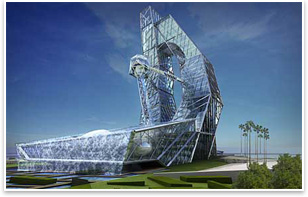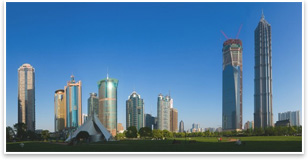
Five Basics You Need to Know to Play in Today’s Global Market by Principal’s Report, adapted from Thomas Travis How do you . . . maximize your business opportunities when working abroad? Summary: As the design and construction business becomes increasingly global, A/E firm principals must think, plan, and operate in new ways. Sometimes, the complexities of doing business on a global scale can feel overwhelming. To work globally, one must understand business opportunities and avoid costly mistakes. To that end, here are five “Tenets of Global Trade” any successful entrepreneur must know. They apply to doing business around the globe, regardless of country, commodity, or culture. Tenet one: Take advantage of trade agreements
Tenet three: Maintain high ethical standards Tenet four: Expect the unexpected The smart global entrepreneur always expects the unexpected and has a flexible enough project delivery system to change course when circumstances dictate.
Creating these on-on-one relationships with your overseas business partners will have a huge payoff. International business is not a nine-to-five job, and the extra time you spend building personal relationships with your foreign counterparts will pay for itself. These tenets of global trade should serve as the backbone of your efforts to build successful global operations or expand them. If you follow them, you can better handle the realities of today’s global trade environment. You will have systems in place to avoid public relations disasters that can result from scandals, security breaches, or ethical breakdowns. With proper planning, unexpected natural disasters, financial market drops, or government breakdowns will not harm your business. Copyright Institute of Management & Administration 2007. Reprinted with permission from Principal’s Report |
||
Copyright 2007 The American Institute of Architects. All rights reserved. Home Page |
||
home
news headlines
practice
business
design
recent related
› AIA Board Considers Offshoring Report
› Building a Brand
For information on AIA activities related to international practice, visit the AIA International Committee Web site.
The AIA Design-Build Knowledge Community will be having its September 27-29, 2007, conference on design excellence in London. For more information, visit AIA.org.
For more information about the Principal’s Report, visit the IOMA Web site.
Thomas Travis is a principal with Sandler, Travis & Rosenberg, P.A. an international trade and customs law firm concentrating in assisting clients with the movement of goods, personnel, and ideas across international borders. He is the author of Doing Business Anywhere: The Essential Guide to Going Global (John Wiley & Sons, 2007).
Captions:
1. Hilal (Half Moon) Headquarters for the Organization of Islamic States, Jeddah, Saudi Arabia, by STRUERE, received acclaim by a jury of Spanish architects and journalists in the 2007 Chicago Athenaeum: Museum of Architecture and Design American Architecture Awards.
2. The Shanghai World Financial Center, by KPF, under construction, will soon dethrone its next-door neighbor, the Jin Mao Tower (at far right, by SOM, SIADR, and East China Architectural Design & Research Institute), as China’s tallest building.


